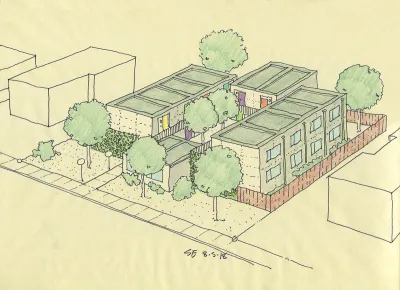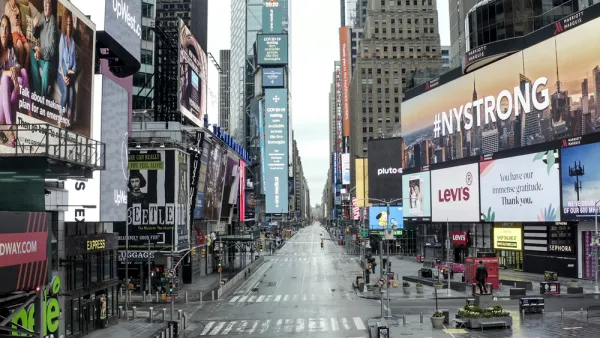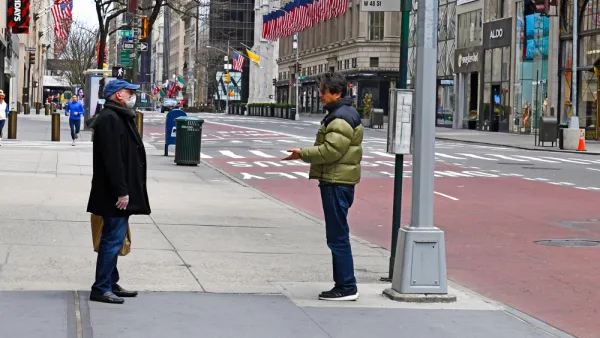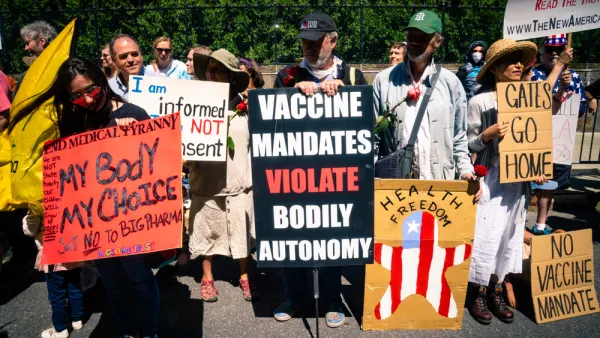Modular systems and flexible use of shared spaces are priorities as urban designers begin to consider how design requirements will change in the future.

Efforts to slow the spread of the coronavirus are prompting creative, life-saving design interventions. The past few months have seen the repurposing of buildings and even shipping containers as medical facilities and the retrofitting of hospitals to facilitate distancing. In the coming months and years, schools and offices will be redesigned to meet social distance protocols.
According to Starr Herr-Cardillo, "many of the pandemic’s most enduring influences over the built environment won’t be felt during the pandemic itself. They will evolve over the next several months and years." Architects, not typically considered to be first responders, are spearheading design interventions that will have a lasting impact on the built environment.
In Philadelphia, the Community Design Collaborative’s Design SWAT team, a design collaborative offering pro-bono design services to community organizations redesigned the local Sunday Breakfast Rescue Mission to include handwashing stations, repurposing the dining hall as a "functional multi-purpose room."
Architects predict that modular systems and flexible use of spaces will be key as retrofits and redesigns are prompted as a coronavirus response. Research is underway and it is possible that "careful evaluation across institutions might help identify those small, innocuous-but-critical design factors that made a difference."
FULL STORY: How designers are remaking spaces for our new socially distanced lives

National Parks Layoffs Will Cause Communities to Lose Billions
Thousands of essential park workers were laid off this week, just before the busy spring break season.

Retro-silient?: America’s First “Eco-burb,” The Woodlands Turns 50
A master-planned community north of Houston offers lessons on green infrastructure and resilient design, but falls short of its founder’s lofty affordability and walkability goals.

Delivering for America Plan Will Downgrade Mail Service in at Least 49.5 Percent of Zip Codes
Republican and Democrat lawmakers criticize the plan for its disproportionate negative impact on rural communities.

Test News Post 1
This is a summary

Test News Headline 46
Test for the image on the front page.

Balancing Bombs and Butterflies: How the National Guard Protects a Rare Species
The National Guard at Fort Indiantown Gap uses GIS technology and land management strategies to balance military training with conservation efforts, ensuring the survival of the rare eastern regal fritillary butterfly.
Urban Design for Planners 1: Software Tools
This six-course series explores essential urban design concepts using open source software and equips planners with the tools they need to participate fully in the urban design process.
Planning for Universal Design
Learn the tools for implementing Universal Design in planning regulations.
EMC Planning Group, Inc.
Planetizen
Planetizen
Mpact (formerly Rail~Volution)
Great Falls Development Authority, Inc.
HUDs Office of Policy Development and Research
NYU Wagner Graduate School of Public Service





























